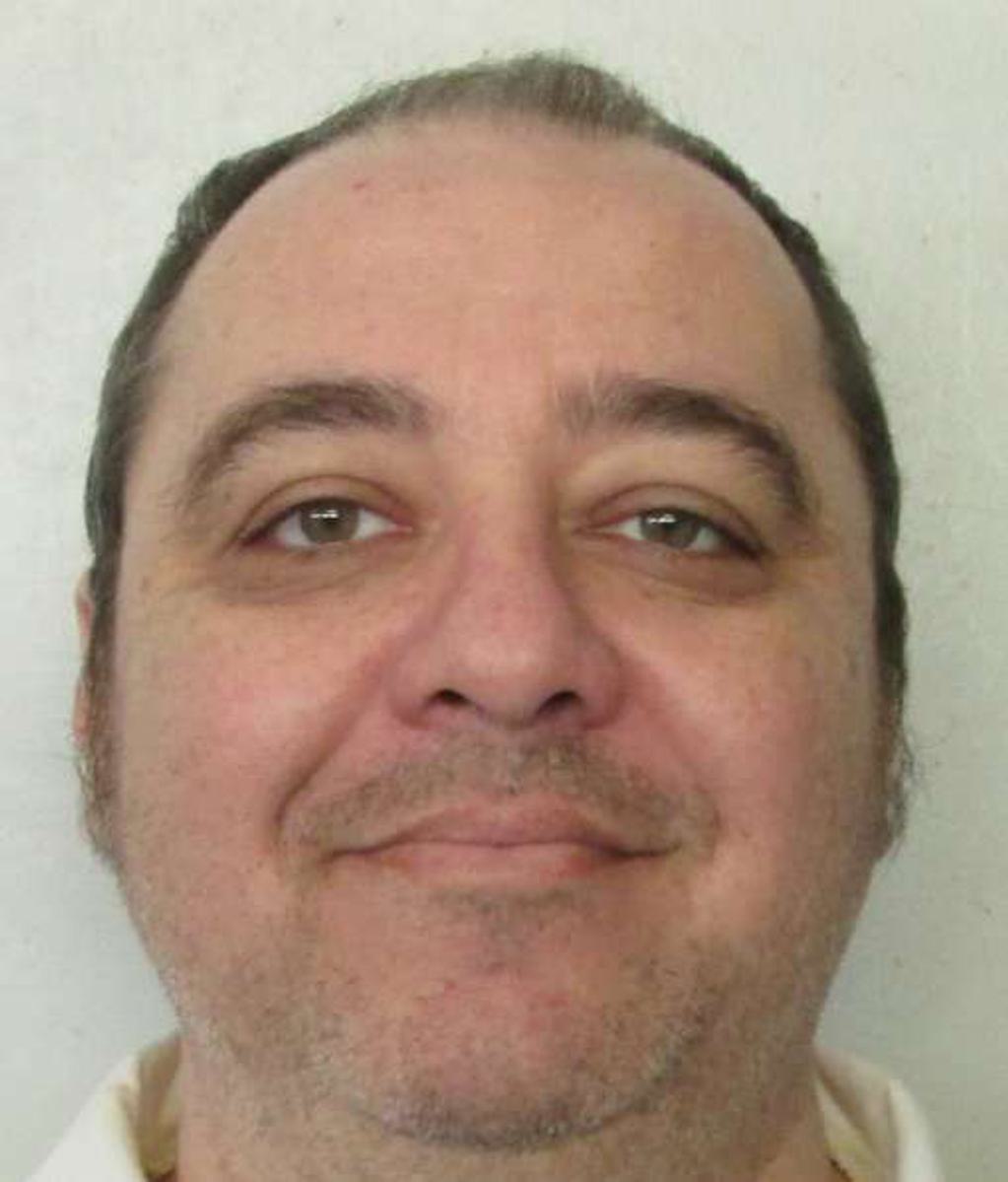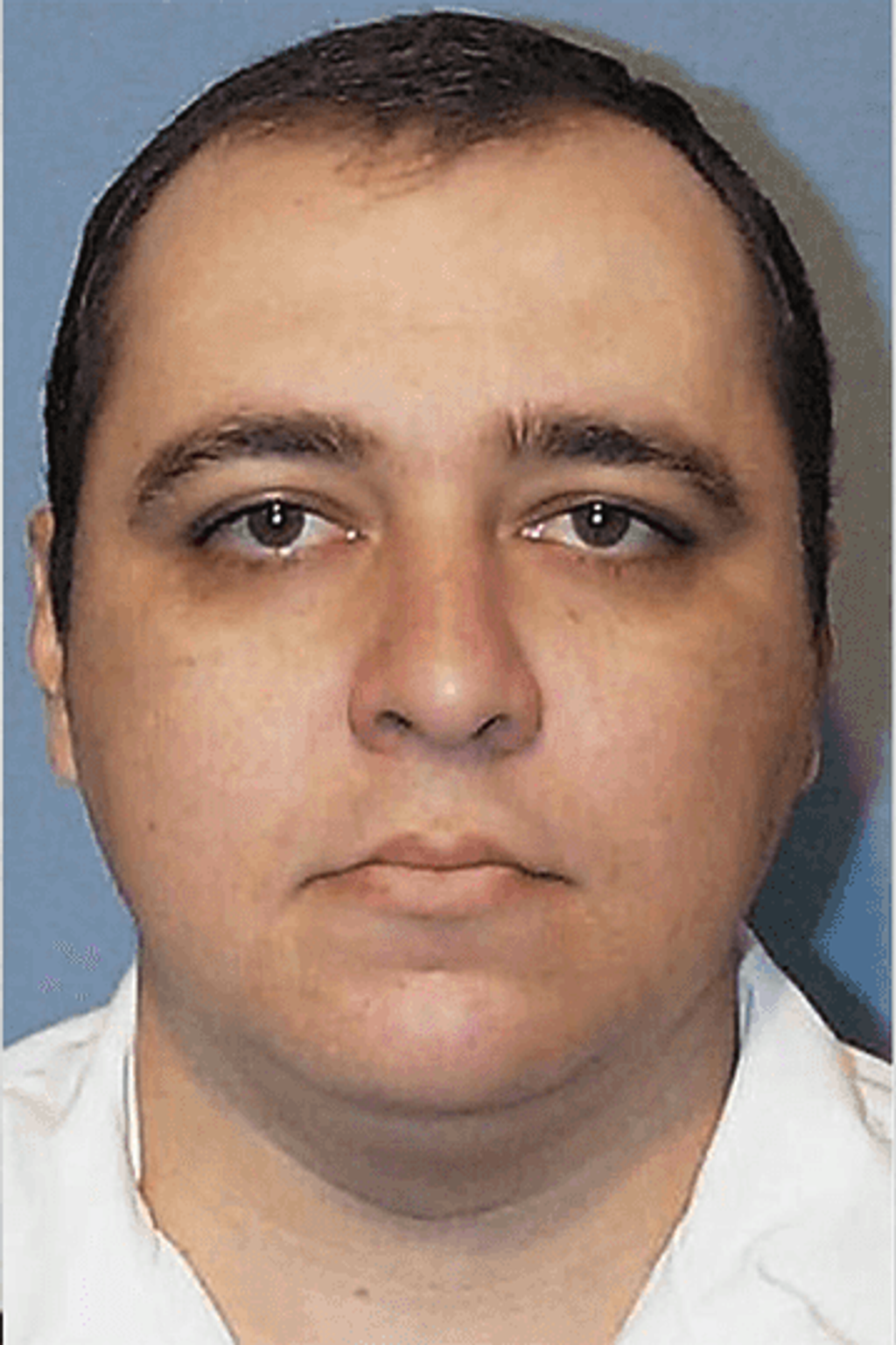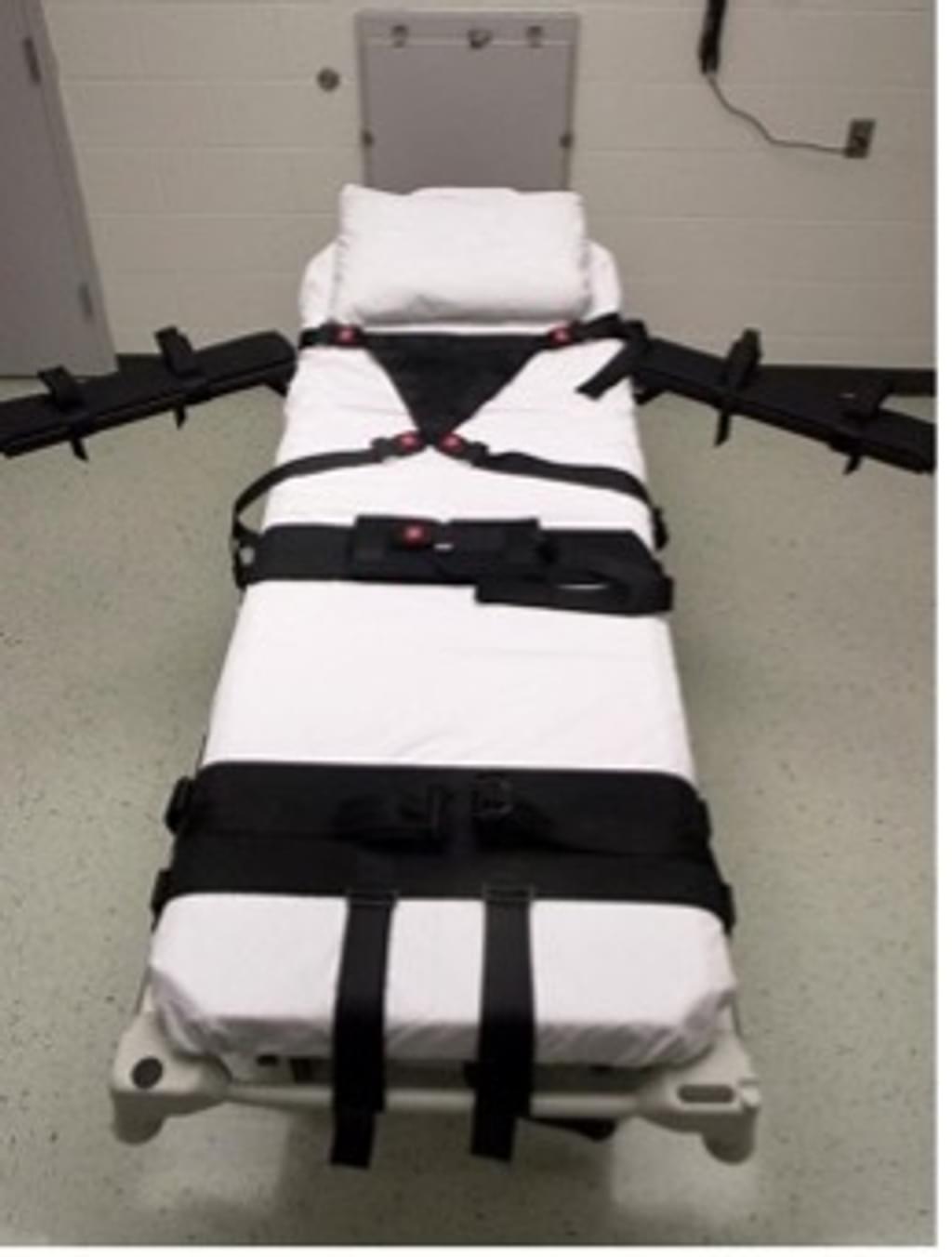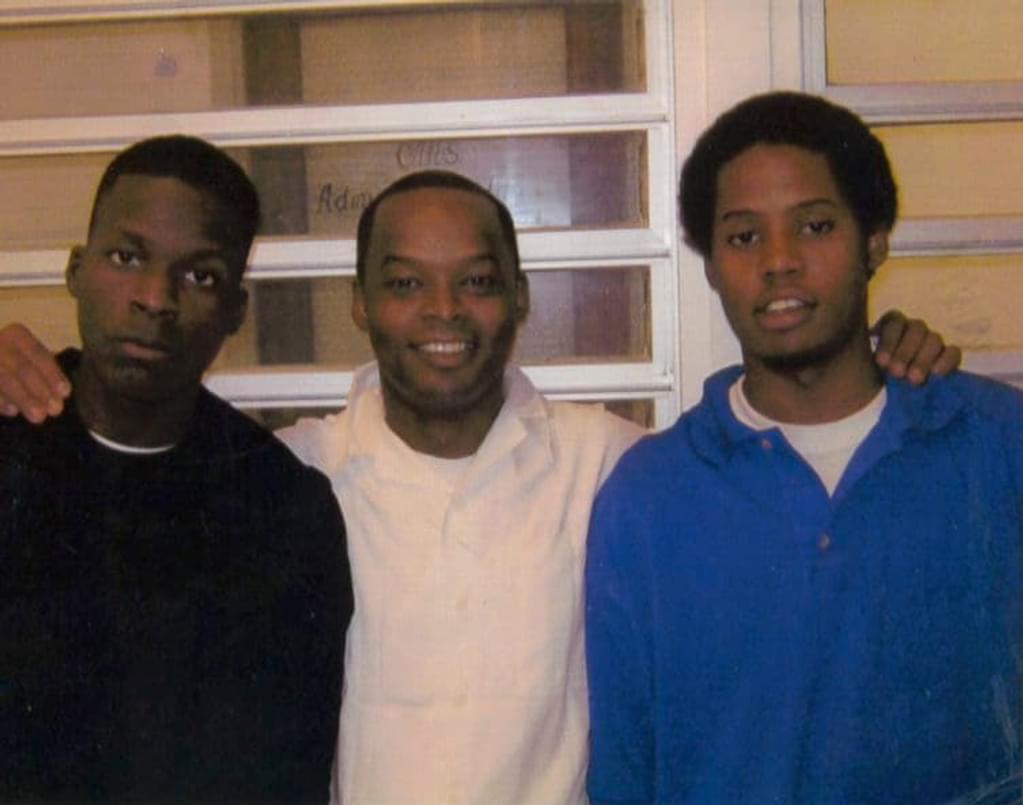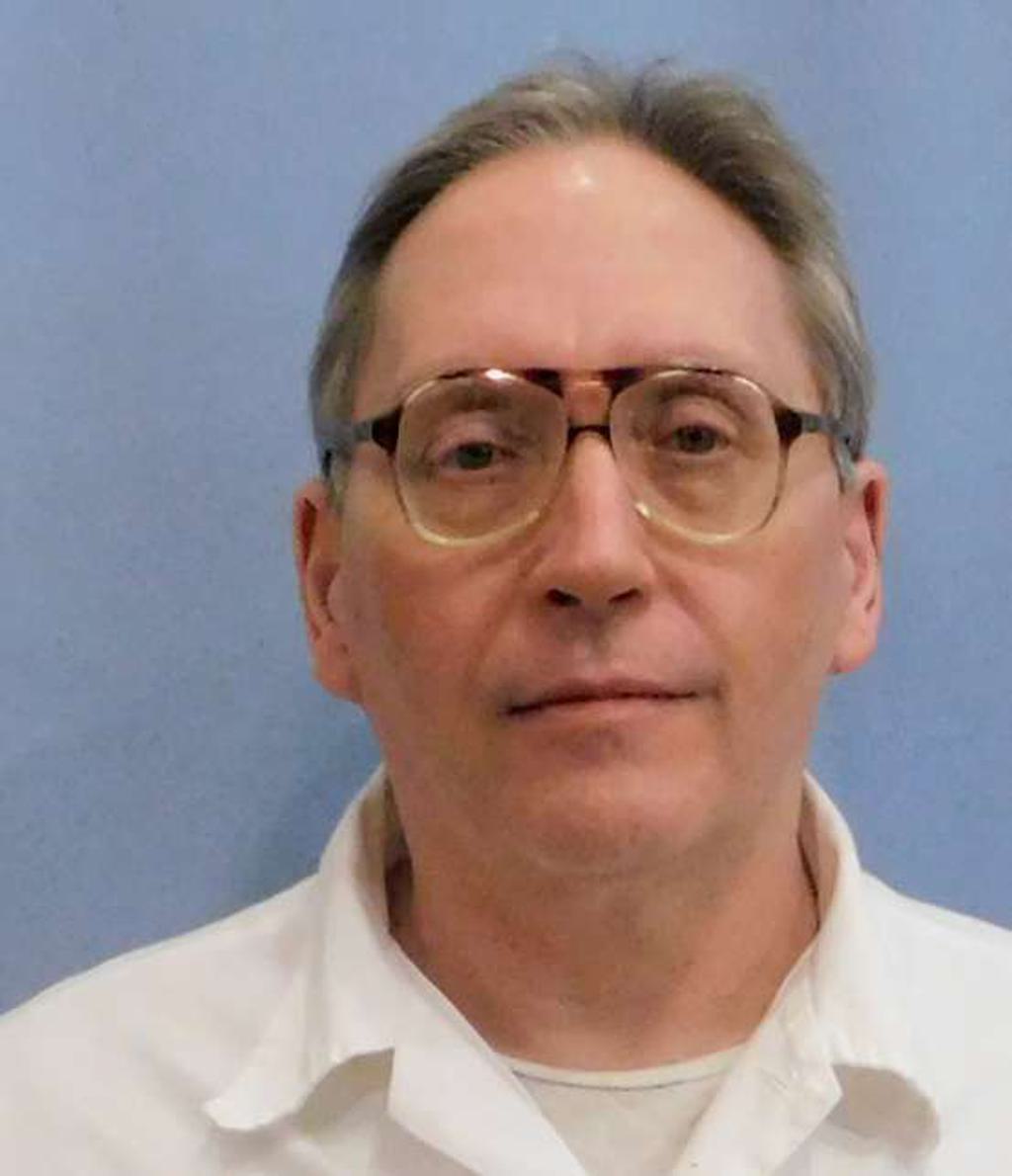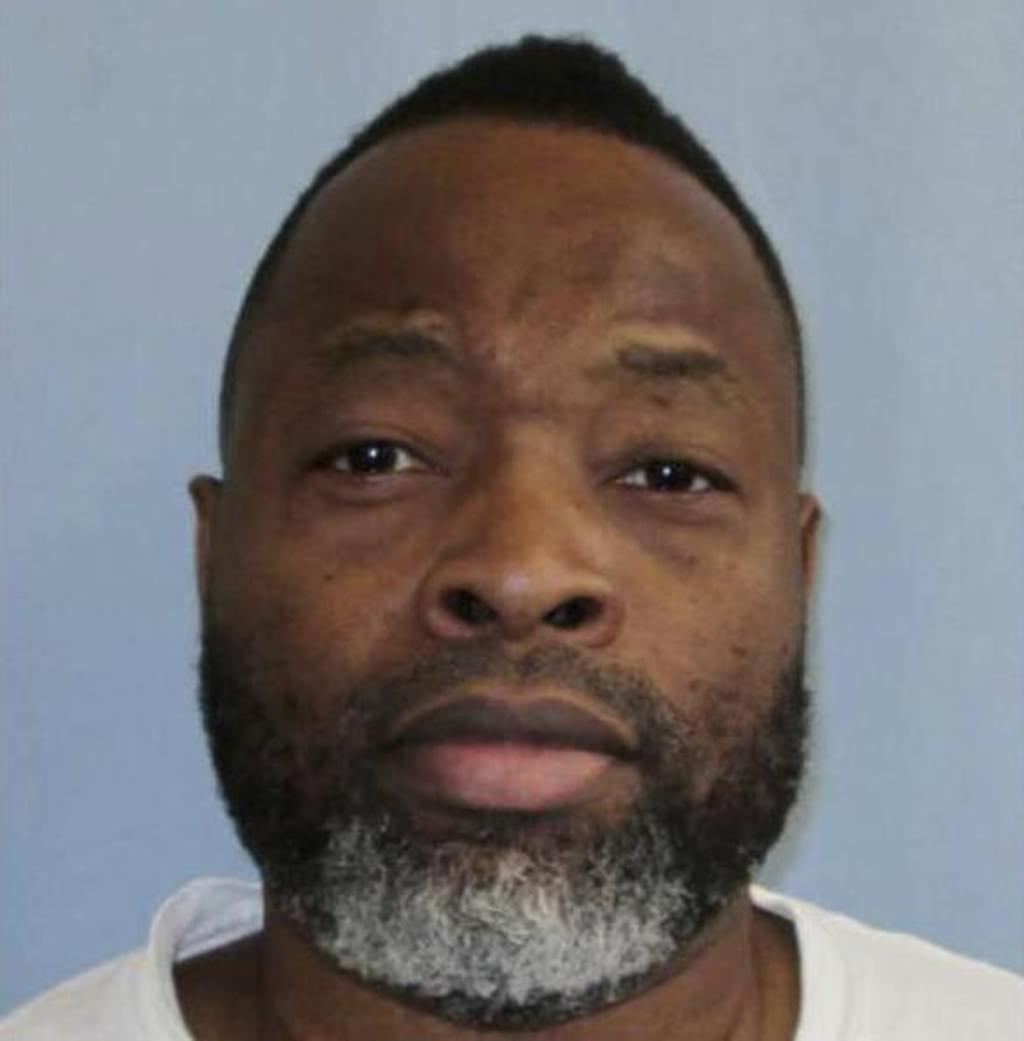
State & Federal
Alabama

History of the Death Penalty
Alabama’s first execution was carried out in 1812. From 1812 to 1927, the primary method of execution was hanging. In 1927, the electric chair, known as “Yellow Mama,” was introduced. Today, the primary method is lethal injection, although inmates convicted prior to 2002 can choose to be executed by electrocution or lethal injection.
Timeline
1812 – First known execution in Alabama, Eli Norman hung for murder.
1927 – Alabama replaces hanging with electrocution as its method of execution.
1972 – The Supreme Court strikes down the death penalty in Furman v. Georgia.
1976 – Alabama passes a law reinstating capital punishment. The Supreme Court soon after reinstates the death penalty when it upholds Georgia’s statute in Gregg v. Georgia.
1983 – John Evans III is the first person executed in Alabama after Gregg.
2002 – Alabama electrocutes Lynda Lyon Block, the last person to undergo that punishment involuntarily in the state. Alabama subsequently made lethal injection its default execution method, but continued to allow inmates to select electrocution.
2006 - Alabama judge imposes the death penalty on Oscar Doster, despite a unanimous jury vote for a life sentence.
2011 - Alabama executes Jason Williams using a secret combination of illegally purchased drugs after the DEA previously seized Alabama’s illegally obtained supply of sodium thiopental, one of three drugs used in lethal injection.
2012 - The Supreme Court holds that mandatory life without parole sentences for children 17 or younger convicted of homicide is unconstitutional in Miller v. Alabama and its companion case, Jackson v. Hobbs.
2013 - The Alabama House of Representatives votes unanimously on a bill to posthumously pardon the “Scottsboro Boys.” The nine black men were teenagers when they were wrongfully convicted for the rape of two white women in 1931 and held in prison for a collective 130 years.
2016 - The Supreme Court orders Alabama to reconsider its death penalty sentencing procedure after vacating Alabama’s decision to uphold a death sentence for Bart Johnson. Mr. Johnson’s sentence was imposed by a trial judge after a 10-2 non-unanimous jury vote, violating the Supreme Court’s decision in Hurst v. Florida.
2018 - Alabama authorizes the use of nitrogen gas as a method of execution.
2018 - Alabama botches the attempted execution of Doyle Hamm. It took the execution team nearly two and a half hours to insert an IV to administer lethal injection, puncturing Hamm in the bladder and femoral artery, resulting in severe bleeding.
2019 - A unanimous decision from the U.S. Court of Appeals for the Eleventh Circuit requires that Alabama reveal critical components of its highly secretive lethal injection execution procedure to the general public.
2022 - Alabama carries out the longest botched lethal-injection execution in U.S. history, taking three hours to set an IV line in the execution of Joe James.
2022 - Governor Kay Ivey halts executions after a series of failed and botched executions, including that of Kenneth Smith, Joe James, and Alan Miller. Gov. Ivey calls for Alabama Department of Corrections to carry out internal review of execution protocol.
2023 - The Alabama Supreme Court eliminates automatic plain error review for trial errors in death penalty cases. The court will no longer be required to read capital case transcripts to see if there are any errors that may have adversely impacted the rights of capital defendants.
Famous Cases
In 1931, nine black boys were charged with raping two white girls. They were tried in Scottsboro, Alabama, and became known as the Scottsboro Boys. All-white juries sentenced eight of the boys to death. The cases were heard by the U.S. Supreme Court in Powell v. Alabama (1932), the landmark case which guarantees the right to counsel in a capital trial. After numerous retrials, only one of the boys was sentenced to death, but his sentence was later commuted to life in prison.
Cornelius Singleton, an inmate with an IQ of 55, was executed November 20, 1992.
Darrell B. Grayson, an African-American man, was convicted by an all-white jury for the murder of a white woman. The Innocence Project sought DNA testing in Grayson’s case, saying that testing not available at the time of his trial might prove him innocent. Requests for new testing were denied, and Grayson was executed on July 26, 2007.
Holly Wood was executed September 9, 2010 despite evidence that he was intellectually disabled, and therefore exempt from execution. His lawyer did not present evidence of Wood’s low IQ during Wood’s original trial. A federal District Court overturned Wood’s sentence, but the U.S. Supreme Court agreed with the ruling from the U.S. Court of Appeals for the Eleventh Circuit that Wood failed to show that the lawyers were constitutionally ineffective.
Walter Moody was executed April 19, 2018. At 83 years old, Moody was the oldest person and only octogenarian put to death in the United States since executions resumed in 1977.
Dominique Ray was executed February 2, 2019 without his chosen religious advisor present. Alabama’s execution protocol mandated that a prison chaplain—and no other religious adviser—be present in the execution chamber, but the state employed only Christian chaplains. Ray, who was Muslim, requested that an imam be allowed in the execution chamber. In a contentious 5-4 decision, the U.S. Supreme Court vacated a federal appeals court stay of execution and permitted Alabama to carry out the execution.
Notable Exonerations
Walter McMillian was sentenced to death in 1988 despite the jury’s recommendation for a life sentence. An investigation by 60 Minutes uncovered prosecutorial misconduct and perjury by witnessess. McMillan was released from prison in 1993.
Anthony Ray Hinton was exonerated in 2015 after having spent 30 years on death row. He was sentenced to death by the court in the 1985 murders of two fast-food restaurant managers, after a 10-2 recommendation of death by the jury. The prosecutor (who was white) had a documented history of racial bias, and claimed he could tell Hinton (who is black) was guilty and “evil” just by looking at him. Hinton was arrested after a victim in a similar crime erroneously identified him in a photo array, even though Hinton proved he was at work 15 miles away when that murder took place. The conviction was based in large part upon scientifically invalid testimony of a state forensic examiner that the bullets in the two murders came from a gun that was found in Hinton’s house. In 2002, three leading firearms examiners testified that the bullets used in the murders could not be matched to Hinton’s gun, and may not have come from a single gun at all. For the next thirteen years, Alabama nevertheless continued to oppose efforts to overturn his conviction and death sentence.
Milestones in Abolition/Reinstatement
Senator Hank Sanders has introduced a moratorium bill for the past 10 years. Representative Merika Coleman has introduced a moratorium bill for the past 5 years.
Other Interesting Facts
Until 2017, Alabama allowed the practice of judicial override, in which judges could override a jury’s sentencing recommendation even when the jury had recommended a life sentence. Alabama still allows a judge to impose a death sentence without a unanimous jury recommendation for death if at least 10 of 12 jurors recommend a death sentence.
From 1927-1976 there were 153 executions. Of those, 126 were African American, 27 were Caucasian. 3 were female.
Alabama is the only state whose anti-death penalty organization (Project Hope to Abolish the Death Penalty) was founded by death row inmates in 1989. The Chairman and Board are at Holman Prion on death row.

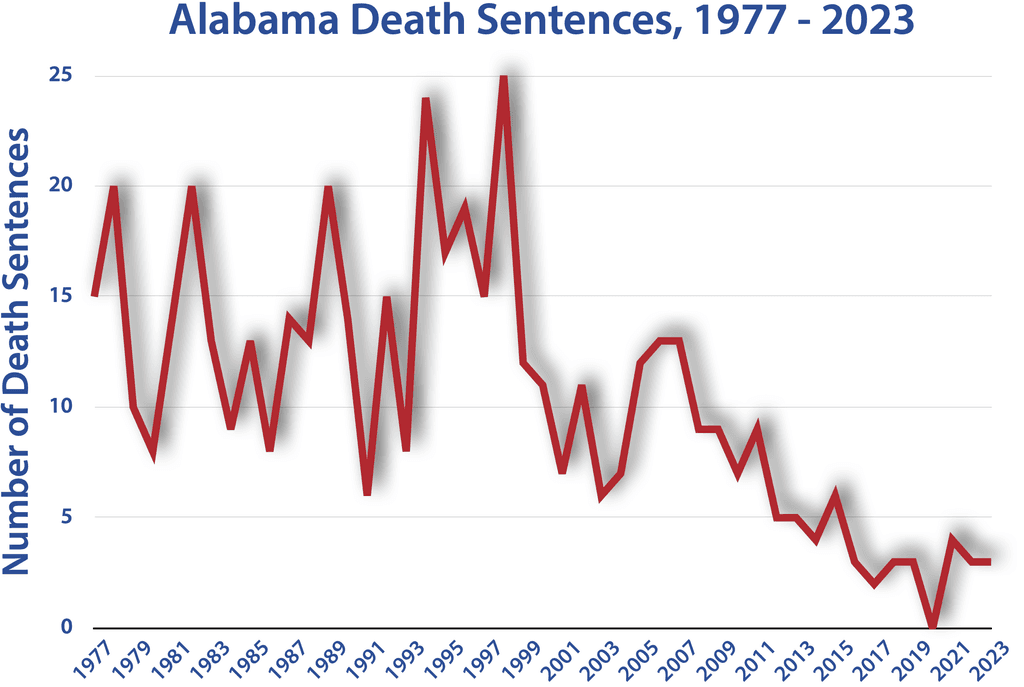
Alabama Execution Totals Since 1976
News & Developments
News
Feb 08, 2024
Past to Present: 100 Years Since the United States’ First Lethal Gas Execution, a Recently Renewed Practice
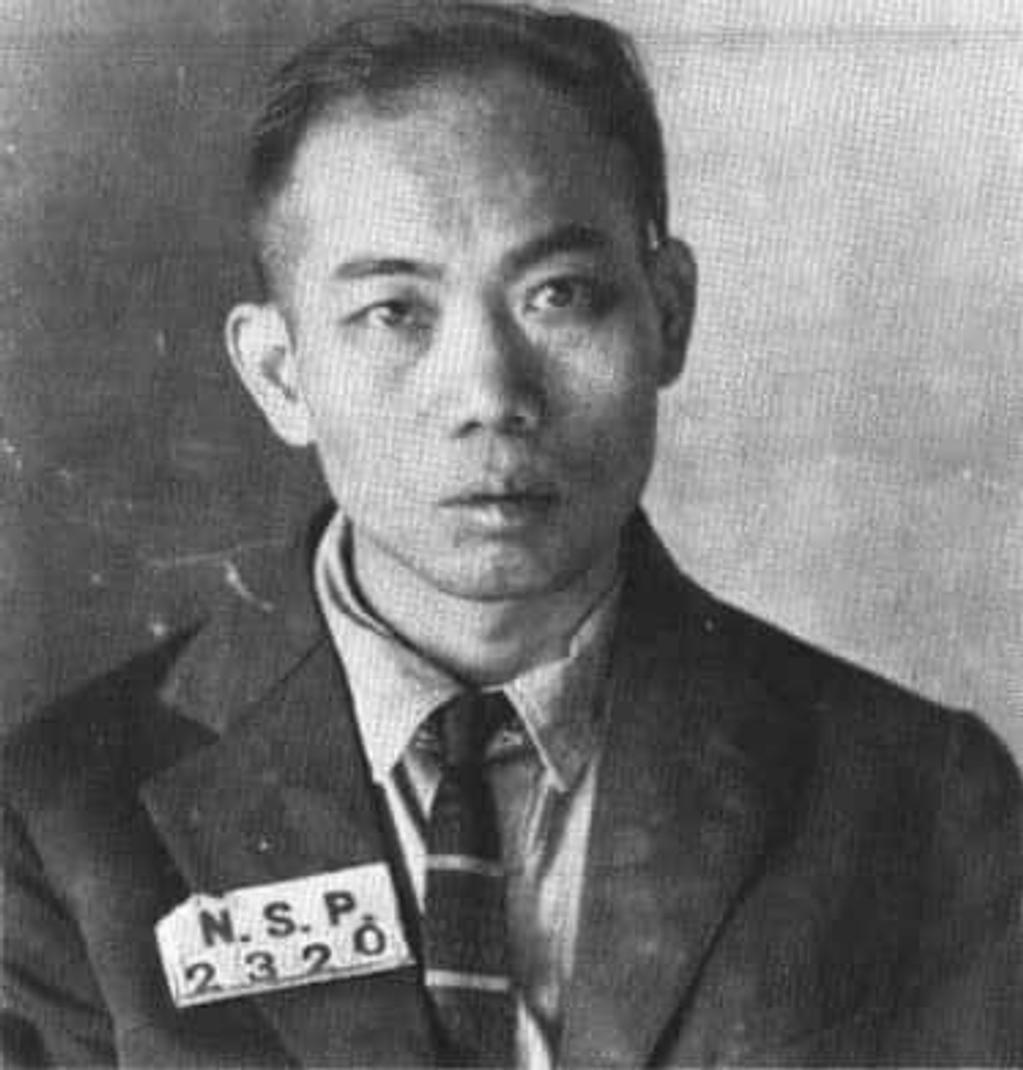
Today, February 8, marks the 100-year anniversary of the first lethal gas execution in the United States, exactly two weeks after Alabama carried out the first execution using nitrogen gas.
Read MoreJan 26, 2024
“The World is Watching”: Witnesses Report Kenneth Smith Appeared Conscious, “Shook and Writhed” During First-Ever Nitrogen Hypoxia Execution
On January 25, 2024, Alabama executed Kenneth Smith using nitrogen hypoxia, a first in American history. Though state attorneys had assured courts that the method would cause “unconsciousness in seconds,” witnesses reported that Mr. Smith appeared awake for several minutes after the nitrogen gas began. They observed that he “shook and writhed” for at least four minutes before breathing heavily for another few minutes. “This was the fifth execution that I’ve witnessed in Alabama, and I have never seen such a violent reaction to an execution,” said media witness Lee…
Read MoreJan 11, 2024
Federal Judge’s Ruling Will Permit Alabama to Execute Kenneth Smith Using Nitrogen Gas
On January 10, 2024, U.S. District Judge Austin Huffaker denied Kenneth “Kenny” Smith’s challenge to Alabama’s intended use of nitrogen gas to execute him. Although Mr. Smith plans to appeal, the ruling currently authorizes Alabama to use its new, untested method of nitrogen hypoxia to execute Mr. Smith on January 25.
Read MoreNov 13, 2023
Alabama Schedules A Second Execution for Kenneth Smith, Using Nitrogen Gas for the First Time in U.S. History
On November 8, 2023, Alabama Governor Kay Ivey scheduled an execution date for Kenneth Smith, marking the first attempt by a U.S. state to use nitrogen gas in an execution. Mr. Smith was convicted of the 1988 murder-for-hire death of Elizabeth Sennett in Jefferson County, Alabama and has been on death row for nearly 34 years. Following the state Supreme Court’s 6 – 2 decision greenlighting Attorney General Steve Marshall’s request for an execution warrant, Gov. Ivey set a 32-hour execution date timeframe beginning on January 25, 2024. Alabama previously attempted to…
Read MoreOct 24, 2023
Use of Nitrogen Hypoxia for Alabama Executions Could Endanger Spiritual Advisors and Prison Staff in the Execution Chamber
In August 2023, Alabama released the first-ever execution protocol for nitrogen hypoxia, an untested execution method in which prisoners will be put to death by suffocation as they are forced to breathe pure nitrogen gas. Alabama’s heavily redacted protocol provides that prisoners will be fitted with a mask and breathing tube to control the gas, which will slowly deprive them of oxygen. However, use of this untested method may also pose dangers to spiritual advisors and prison staff in the execution chamber.
Read MoreOct 02, 2023
Supreme Court Denies Certiorari to Two Death-Sentenced Men with Credible Innocence Claims
On October 2, the first day of its new term, the Supreme Court denied review in two high-profile death penalty cases: Toforest Johnson and Robert Roberson. Both men have long maintained their innocence and have garnered broad bipartisan support for their innocence claims.
Read MoreAug 28, 2023
Alabama Attorney General Seeks Execution with Unprecedented, Untested Method Using Nitrogen Hypoxia
On August 25, 2023, Alabama Attorney General Steve Marshall asked the state Supreme Court to set a date for Kenneth Smith to be executed using nitrogen hypoxia, a method that has never been used in any state. The decision to use this method comes after Alabama botched several executions. Since 2018, when Alabama initially authorized the use of nitrogen hypoxia in capital punishment, the state has been working to establish a protocol for executions using this method. Alabama initially authorized nitrogen hypoxia amidst a shortage of lethal injection drugs. Oklahoma…
Read MoreJul 27, 2023
Alabama executes James Barber as SCOTUS denies a stay
On July 21, 2023, Alabama death row prisoner James Barber was executed two hours after the U.S. Supreme Court denied his motion for a stay in a 6 – 3 decision. This marks the state’s first execution since a series of three botched executions in 2022 and an internal investigation into the Alabama Department of Corrections’ (ADOC) execution protocol.
Read MoreJul 19, 2023
Alabama Plans to Resume Executions After Series of Botches; Oklahoma Execution Scheduled for Same Day
Two of the nation’s highest-use death penalty states have scheduled executions for July 20, 2023. Alabama is set to execute James Barber (pictured, left), resuming executions after Governor Kay Ivey halted them in November 2022 in response to three consecutive botched executions. Oklahoma plans to execute Jemaine Cannon (pictured, right), one of the 25 people included in the two-year execution spree announced in 2022.
Read MoreMay 26, 2023
Former Republican and Democratic Governors from Alabama Critique State’s Death Penalty and Express Regret
“[W]e have come over time to see the flaws in our nation’s justice system and to view the state’s death penalty laws in particular as legally and morally troubling,” wrote two former governors of Alabama in an op-ed for the Washington Post. Republican Robert Bentley (pictured, right) and Democrat Don Siegelman (pictured, left) agree that the 146 people whose death sentences were imposed by non-unanimous juries or judicial override should have their sentences commuted. “We missed our chance to confront the death penalty and have lived to regret it,” they wrote,…
Read MoreMay 08, 2023
Family Sues Alabama Over ‘Longest Known Execution in U.S. History’
On May 3, 2023, the family of Joe Nathan James (pictured) sued the state of Alabama for the pain and suffering it caused during his three-hour-long lethal injection in 2022. It is believed to be the longest known execution in U.S. history. The suit asserts that “the execution team failed to execute Mr. James in a manner that comports with the U.S. Constitution, the Alabama Constitution, and applicable state law.”
Read More

